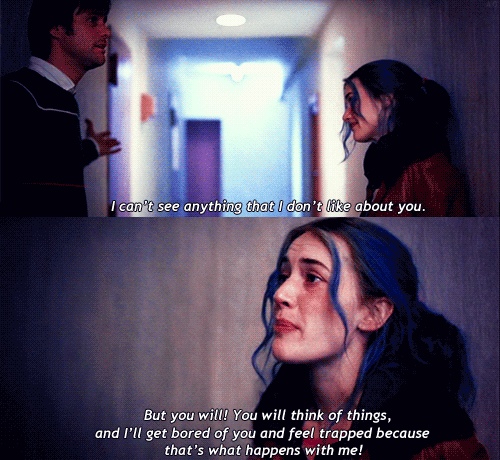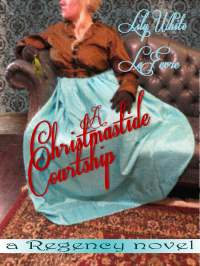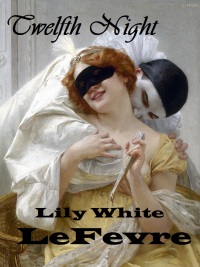
Another delayed review, although this one was delayed because I put off seeing this movie for that perfect afternoon of having nothing better to do and there being nothing better at the theater. I am not sorry I waited so long to see this new Star Trek movie, unless you want to count being sorry that I did not wait longer. Like forever. This second movie in the Abrams reboot annihilated my interest in the new series.
I don’t say this simply to be a contrarian who refuses to like what is popular or different from the original; my complaints are based on what I perceive as lazy storytelling and overeager pandering to the casual fandom. As per my usual reviewing policy, I warn ye: Warp spoilers ahead.
What I liked about the new movie: they brought back Khan. And cast Benedict Cumberbatch to play him.
*crickets chirp*
Yes, those are about the only two real positives I can come up with for this one. First, I didn’t like the way the movie was marketed. The trailer made it look like an action flick – and while, yes, Star Trek as a whole has plenty of action, it is not known as being an action flick per se. The trailer was nothing but one grandiose effect and near-escape after another, designed to appeal to the same crowd that keeps showing up at Transformers movies and allowing Michael Bay to keep making movies. If I had not heard Khan was in the film, I probably would have waited for DVD and maybe even not bothered to watch it at all. But, I thought, maybe they are just showing us ALL the action moments to get that demographic in, when really the film is deeper than that (I mean, it has Khan, for fuck’s sake!). From the glowing write-ups I saw amongst my friends on social media, I thought that was even likely the case.
It was not. This movie betrayed both the spirit of the original series and all principles of good storytelling.
First of all, I am tired of Emo Kirk. I get that this franchise is a reboot, a retelling, and that the experiences and attitude Kirk brought to his captaincy in the original series is not the path this Kirk has trod, therefore we are not necessarily going to get the same Kirk. But what we’re given is someone who does not think the same way Kirk thinks, rather than someone who weighs his thought process against different life experiences. I didn’t mind his emotion-based decisions in the first movie, because he was so young and untried, but I felt like he learned nothing from that experience. Throughout this film he makes his decisions based on his feelings, NOT on his instincts. Huge difference. Kirk sometimes followed a path that seemed illogical, but was actually highly logical – it just relied on data that Spock did not have at his disposal, and that was Jim’s sense of tactics and knowledge of human nature, which is driven by irrationality, so it sometimes seemed illogical. And Kirk did not flinch away from feeling the emotional impact of his decisions, but – and this is the lynch-pin but here, HE DID NOT USE THE POTENTIAL EMOTIONAL IMPACT OF THOSE CHOICES TO MAKE HIS DECISION.
That is the key difference. Emo Kirk can’t do anything that will make him feel bad. So he violates pretty much the only rule he is given as an officer in order to avoid the guilt and sense of loss he would feel if he watched a promising life form perish, and he goes haring off to enemy space and risks starting a civil war merely because he wants revenge. About the only logical choice he makes is to sacrifice himself to save his vessel and his crew at the end, but I read even that one as emotion-based: he couldn’t bear the guilt of not saving them. It was not a noble sacrifice to orchestrate his singular death in order to save hundreds of lives; it was a guilt-based decision because he would feel bad if he didn’t. Aw.
And that sacrifice? Was a complete bullshit sacrifice. Remember my rant about how World War Z had no consequences? Neither did this Star Trek. Viewers who had seen the original movie with Khan knew that Spock kills himself to save the ship, and so Emo Kirk’s choice was a parallel to that, the way almost everything else in this reboot is so predictably role-reversed. I didn’t necessarily mind that decision, even if it was obvious film-making, except for this: the writers/producers/director didn’t have the balls to actually let Kirk die. The audience could not be allowed to think, even for one movie, that Kirk was gone. I would have liked this movie if Kirk stayed dead – especially if it really is the last in the reboot (which I sincerely doubt is the case). I don’t say that to be macabre or because I like sad and depressing stories (I don’t; I write and primarily read romance for a reason!) but because his actual death would have lent consequences to the story that, thus far, it had pretended were there but had not demonstrated. Instead, with the injection of Khan’s magic rejuvenating blood, we have a hero who cannot be allowed to die, and so no future movie can ever hold true narrative tension again.
Aside from that fatal storytelling flaw, the film also made too-obvious references as a sop to casual fans. First, the parallel with The Wrath of Khan where Jim and Spock have traded places was, again, obvious. I saw it coming the moment we learned “nothing can save” the ship. Neither the moment nor the switch felt like clever storytelling; they felt like lazy storytelling, where the writers were trying to force the narrative back to a handful of origin-film plot points, and that was one of them. (In fact, going back to my previous point – the very existence of an “out” from that scenario of certain destruction made this film seem like it had no consequences.) Second, the Tribble inclusion. What was that doing there? It served no narrative purpose – any number of alien lifeforms could have been on McCoy’s dissection table and gotten reanimated with Khan’s blood – and so the only reason for its inclusion was to make people squee and say “Tribbles! I GET it! I get the joke!”
That the writers used Tribbles for this says they were not aiming that joke, that sense of inclusion – AND THEREFORE THIS MOVIE – at true fans of the show. There are countless other episodes that could have been referenced, that are not among the most famous three episodes from the original series, that would have felt like a nod to true fans. The obviousness of this one gave me the same distaste I feel for The Big Bang Theory, which is not a show for actual nerds but people who like to think of themselves as nerdy because they watch a really popular SF series or two.
I have nothing against dropping references. In fact, I adore it.

Francis Crawford of Lymond is my favorite fictional character ever because he basically speaks in quotations, but they are always apt and often so obscure no one he’s talking to understands that he’s quoting someone. My husband and his friends, and to a lesser extent he and I, communicate with quotes and references from movies and TV. The entirety of Tumblr is a giant conversation among fans that relies on prior knowledge of the canon(s) being referenced. But if you’re going to use a reference, you should use it appropriately – and that, to me, is to aim it at people in the know. If you can explain to me why this caption is wrong, then you feel the way I do:

The basis of this joke is actually great. The problem? Whoever wrote it explained it. The caption should be “Ain’t no party like a Timelord party cuz a Timelord party don’t stop.” PERIOD. If you know the reference, you know why a Timelord party wouldn’t stop. The explanation ruins the joke, because it aims it at people who don’t know the reference.
This is what the new Star Trek did. It made really obvious references that proved the movie wasn’t aimed at actual fans, just those hangers-on who consider Star Trek to be one of the few SF series they’ll watch sometimes, and that pretty much violated the prime directive of this reboot existing in the first place, as far as the real fans go.
In fact, much as Khan made me curious to see the thing, his inclusion as the villain was yet another reference anyone only vaguely familiar with the series should get. And going back to my lack of consequences point? This Khan was not angry at Kirk because of actions Kirk took against him; this Khan was angry at modern humanity in general, and Kirk just happened to be the one who stood up against him. Thus there was no heft, no momentousness to Khan and Kirk fighting one another. And the whole thing about Khan working with them at first, and being maybe not the villain, was just more role reversal of “hey this is a parallel universe so everything’s opposite! Isn’t that original?!” that was neither surprising nor original (nor was it surprising when he then turned out to be the villain, after all).
On the whole this movie just left me really annoyed. It was an unsatisfying narrative with no consequences and way too many gratuitous explosions, and no emotional impact because no one in the franchise will let this veer away from summer blockbuster fare and into actual darkness.








